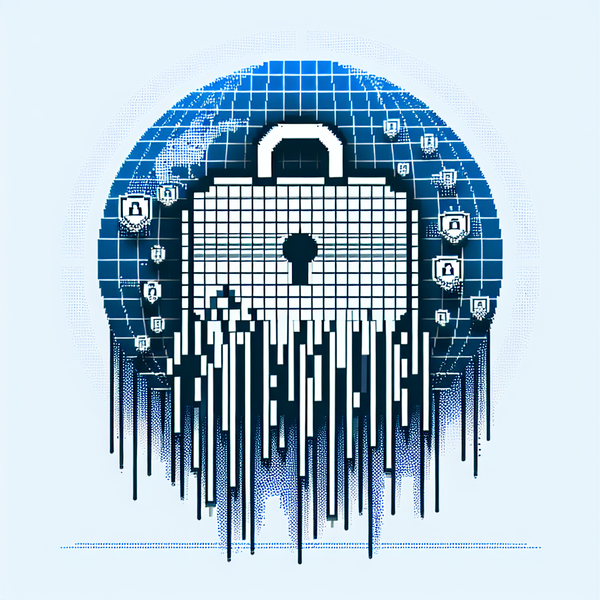Secret CISO 6/9: AT&T, Coinbase, SK Telecom, Austin Insurance, Miami Hospital Breaches; AI Threats, European Research Security, NPM Malware; Tenda, OpenHarmony Vulnerabilities

Welcome to today's issue of Secret CISO, where we bring you the latest in cybersecurity news, research, and vulnerabilities. Today's issue is packed with critical updates that you need to be aware of.
First, we delve into a series of data breaches that have rocked the cybersecurity world. AT&T, Coinbase, SK Telecom, Austin Small Business Group Health Insurance, and a prominent Miami hospital have all fallen victim to significant data breaches, exposing sensitive customer information and causing potential financial losses. These breaches highlight the importance of robust security measures and the potential risks of data circulating online.
Next, we explore some thought-provoking research and insights. Security researcher Dakshitaa Babu discusses the challenges faced by enterprises in adopting new browsers, while Google security researchers raise concerns about the impact of AI on the threat landscape. We also look at the varying levels of research security practices across Europe, the performance requirements for threat detection equipment in public spaces, and the discovery of malware in NPM packages with over 1 million weekly downloads.
Finally, we report on a series of critical vulnerabilities that have been discovered. Tenda AC9, OpenHarmony, Tenda AC6, and Tenda AC15 have all been found to have critical vulnerabilities, potentially allowing for remote attacks and information leaks. These discoveries underscore the need for constant vigilance and proactive security measures.
Stay tuned for more updates and stay safe in the digital world!
Data Breaches
- AT&T Customer Data Breach: Hackers exploited major security flaws to access and steal AT&T customer data, including birthdates and social security numbers. The data might have been repackaged and is potentially circulating online. Source: PhoneArena
- Coinbase Data Breach: Coinbase suffered a significant data breach in May 2025, resulting in a potential loss of $400M and exposing 70,000 users. The breach was attributed to insider threats and bribes. Source: The Canberra Times
- SK Telecom SIM Data Breach: SK Telecom reported a major data breach affecting customer information. The breach compromised 25 types of data, including phone numbers and International Mobile Subscriber Identity. Source: Mobile ID World
- Austin Small Business Group Health Insurance Data Breach: A significant data breach exposed sensitive information of Austin Small Business Group Health Insurance clients. The breach involved improper handling of data, including contact details, social security data, financial status, and medical information. Source: Insurance News Net
- Miami Hospital Data Breach: A massive data breach at a prominent Miami hospital has left thousands of patients vulnerable, causing shockwaves through the community. The extent of the data compromised is still unclear. Source: Soy Carmin
Security Research
- 3 key challenges in enterprise browser adoption: Lessons from Arc's pivot: Security researcher Dakshitaa Babu discusses the challenges faced by enterprises in adopting new browsers, focusing on the lessons learned from Arc's pivot. The key challenges include compatibility issues, security concerns, and user resistance to change. Source: CFOtech Asia.
- Wider impact of AI on threat landscape: Google security researchers have found a Zero Day using AI, raising concerns that threat actors could also use the technology to find vulnerabilities. The research highlights the need for increased vigilance and proactive security measures in the AI space. Source: Professional Security Magazine.
- Varying European Research Security Practices Causing Challenges: Researchers have found that European countries have very different levels of research security practices in place, which can cause challenges in protecting against threats from China and other countries. The study calls for a more unified approach to research security across Europe. Source: Export Compliance Daily.
- Performance requirements for threat detection equipment used in public spaces: The JRC border security research supports the Commission's plans in ensuring protection from security threats in public spaces across the EU. The research focuses on the performance requirements for threat detection equipment used in these spaces. Source: Joint Research Centre.
- Malware found in NPM packages with 1 million weekly downloads: Security researcher Charlie Eriksen found malware in NPM packages with over 1 million weekly downloads. The research highlights the need for increased vigilance and proactive security measures in the software supply chain. Source: Bleeping Computer.
Top CVEs
- CVE-2025-5847 - Critical Vulnerability in Tenda AC9: A critical vulnerability has been found in Tenda AC9 15.03.02.13. The vulnerability is in the function formSetSafeWanWebMan of the file /goform/SetRemoteWebCfg of the component HTTP POST Request Handler. The manipulation of the argument remoteIp leads to stack-based buffer overflow. The attack can be launched remotely. Source: CVE-2025-5847
- CVE-2025-26693 - Information Leak in OpenHarmony: OpenHarmony v5.0.3 and prior versions have a vulnerability that allows a local attacker to cause an information leak. Source: CVE-2025-26693
- CVE-2025-5852 - Critical Vulnerability in Tenda AC6: A critical vulnerability has been found in Tenda AC6 15.03.05.16. The vulnerability is in the function formSetPPTPUserList of the file /goform/setPptpUserList. The manipulation of the argument list leads to buffer overflow. The attack can be launched remotely. Source: CVE-2025-5852
- CVE-2025-5851 - Critical Vulnerability in Tenda AC15: A critical vulnerability was found in Tenda AC15 15.03.05.19_multi. The vulnerability affects the function fromadvsetlanip of the file /goform/AdvSetLanip of the component HTTP POST Request Handler. The manipulation of the argument lanMask leads to buffer overflow. The attack may be initiated remotely. Source: CVE-2025-5851
- CVE-2025-26691 - Information Leak in OpenHarmony: OpenHarmony v5.0.3 and prior versions have a vulnerability that allows a local attacker to cause an information leak. Source: CVE-2025-26691
Final Words
That's it for today's edition of the Secret CISO newsletter. We've covered a lot of ground, from major data breaches at AT&T, Coinbase, and a Miami hospital, to the challenges of enterprise browser adoption and the wider impact of AI on the threat landscape. We've also delved into the varying research security practices across Europe and the performance requirements for threat detection equipment in public spaces. Not to forget, we've highlighted some critical vulnerabilities in Tenda AC9, AC6, AC15, and OpenHarmony.
Remember, in the world of cybersecurity, knowledge is power. The more we know, the better we can protect ourselves and our organizations. So, don't keep this valuable information to yourself. Share this newsletter with your friends, colleagues, and anyone else who could benefit from staying informed about the latest in cybersecurity.
Let's continue to learn, share, and work together to make the digital world a safer place. See you in the next edition of Secret CISO. Stay safe and secure!




